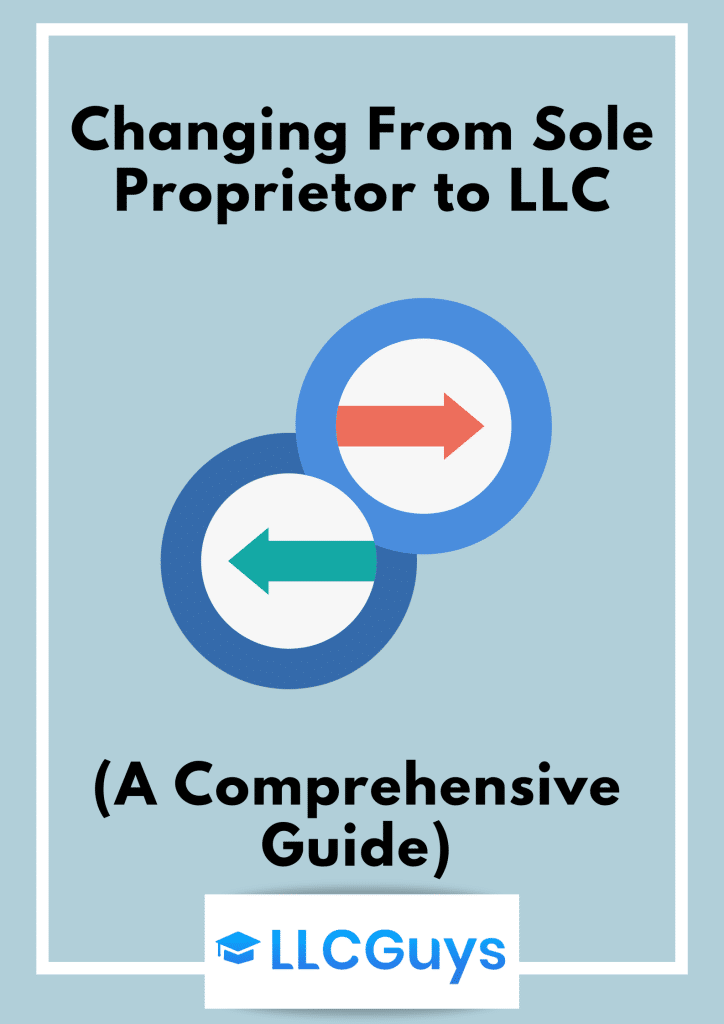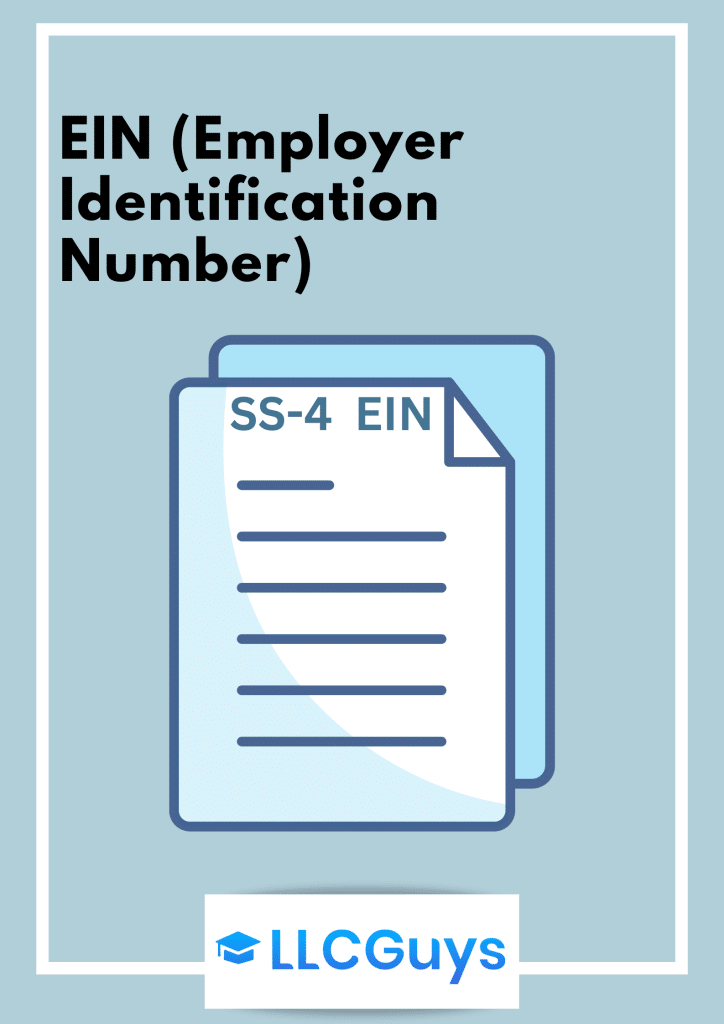Changing From Sole Proprietor to LLC (A Comprehensive Guide)
Hire Professionals to Form an LLC For You (from $0 + state fees)

Are you a small business owner? If so, chances are that you have a sole proprietorship – the most common formation for businesses without employees (a total of 86.6% of non-employers).
However, as your company begins to expand, it may be beneficial to change from this structure and switch over to an LLC instead.
In this guide, we will cover what each type of entity entails, why transitioning might be advantageous for your organization, and how exactly one can move from being a sole proprietor into establishing an LLC.
If you want to skip the hassle of switching from a Sole Proprietor to an LLC yourself, consider using professional help:
- Northwest Registered Agent ($39+state fees) (best support)
- ZenBusiness ($0+state fees) (best price)
- Hire Professionals to Form an LLC For You (from $0 + state fees)
- Sole Proprietorship vs. LLC
- 4 Reasons to Change From Sole Proprietor to LLC
- Potential Benefits of Changing to an LLC
- How To Change From Sole Proprietorship to LLC in 6 Steps?
- Step 1: Confirm & Choose Your Business Name
- Step 2: File Articles of Organization With the State You’re Incorporating In
- Step 3: Draft and Execute an LLC Operating Agreement
- Step 4: File a Form SS-4 To Obtain an EIN
- Step 5: Apply for a Business Bank Account
- Step 6: Apply for Business Licenses and Permits
- Hire Professional Help to Form an LLC in Any State For You
- Summary
- FAQs
Sole Proprietorship vs. LLC
It’s critical to comprehend the distinctions and advantages/disadvantages of an LLC versus a sole proprietorship prior to making any changes in business structure.
Pros and Cons of Sole Proprietorship
As a sole proprietor, you are the only owner of your business and, consequently, file all self-employment taxes with the government. The law holds this type of business to be one legal entity that encompasses both yourself as an operator and your organization. Therefore, any income earned is taxed by personal income tax laws.
Pros:
Cons:
Pros and Cons of Limited Liability Company (LLC)
LLCs offer exceptional protection to their owners and are the ideal structure for conducting business in the US. Essentially, a Limited Liability Company (LLC) is structured such that its members remain independent legal entities with separate liabilities from one another. This means that ultimately each member of an LLC remains shielded from debts acquired during operations by other members or even the company itself! You also need an EIN number because an LLC is a separate legal entity, one does generally need to update a new employer identification number when starting a new LLC.
Want to form an LLC on your own? But have no idea where to begin? Take a look at our guide on how to start an LLC.
Pros:
Cons:
4 Reasons to Change From Sole Proprietor to LLC
If you are starting a small business, it is wise to consider the advantages of creating an LLC instead of just forming a sole proprietorship. Not only will this provide more protection for your assets and finances, but also offers several other benefits that make establishing an LLC beneficial in the long run. Here are some top reasons why going with an LLC may be right for you:
#1: You Want to Protect Your Personal Assets

When you are a sole proprietor, your private assets can be utilized to satisfy any business debts or responsibilities. In contrast, if you choose the LLC structure for your company, then those same personal possessions stand independent of the business and cannot be taken into account as resources.
#2: You’re Planning to Add a Business Partner

By taking on a co-owner, your business will be automatically turned into a general partnership. Unfortunately, this does have its downsides – it increases your overall liability exposure significantly as you remain liable for any of the business’s obligations even if there was something that occurred without either one of you knowing or consenting to it. Forming an LLC is an excellent way to protect yourself and your personal assets should someone decide to file a lawsuit against the company!
#3: You Can Save Money on Taxes

As a self-employed individual, you must pay the payroll taxes that come with it. Forming and LLC and electing for S corporation (S-corp) taxation can help you save on these costs. With this method, owners become employees of their own LLC who only have to bear the burden of payroll taxes on their fair salary instead of all company profits. To gain more insight into this option, consulting an accountant is highly recommended!
#4: You Want to Hire Employees

As a sole proprietor, you can hire employees to assist with your operations. However, it’s important that employment and tax laws are properly followed. For instance, LLCs may be the better choice if you plan on hiring full-time workers since this structure allows for easier accounting of employee compensation and taxes. Not only that but forming an LLC will help protect your assets from possible disputes with employees due to being subject to applicable employment laws as well.
Potential Benefits of Changing to an LLC
Consequently, how can operating as a sole proprietorship prove to be unfavorable? It depends on the circumstances. No entity type is perfect for every business!
In this case, there’s an absence of both legal and financial separation between the company owner and their business in a sole proprietorship. If anyone decides to take action against your business or it happens that you’re unable to pay off certain debts, then you are solely liable for any liabilities and obligations the firm may have. As a result, all of your investments such as retirement funds, accounts in banks, cars, etc., will be vulnerable if someone attempts to reclaim them due to said unpaid debts from your company.
By forming an LLC, business owners (called members) can safeguard their personal possessions and assets. Since the LLC is considered to be its own legal entity, most of the time those owning it are not held personally accountable for any financial or legal obligations that may arise from running the company. Therefore, an LLC helps provide more protection than other forms of business when managing risks.
An LLC also offers unbeatable tax freedom. By design, an LLC is taxed in the same manner as a sole proprietorship, with all profits and losses reflected on the owner’s personal income tax returns. Fortunately for owners of eligible businesses that meet IRS requirements though, they can choose to be taxed as an S Corporation – this provides relief from some self-employment taxes!
How To Change From Sole Proprietorship to LLC in 6 Steps?
Step 1: Confirm & Choose Your Business Name

As the initial measure when transitioning from a sole proprietorship to an LLC, you must confirm if your desired business name is available in the state where you plan to register. Even though this might be your current label as a sole proprietor doesn’t necessarily mean it’s attainable for an LLC. To ensure that your preferred name isn’t already taken, conduct a search on the website of the agency that handles corporate registrations – typically referred to as secretary of state.
After ensuring that the proposed name is available in your state, it’s essential to search the USPTO database to make certain that no trademark laws are being broken. If you discover a potential conflict or find out that the name cannot be used in your area, then consulting an attorney may be beneficial and looking into other names might also prove necessary.
Step 2: File Articles of Organization With the State You’re Incorporating In

When you have finally selected the perfect name for your LLC, it’s time to submit the articles of organization and pay any applicable filing costs. Articles of organization are quite simple and just request a few essential facts about your LLC such as its address, purpose, registered agent information (who will be receiving legal documents on behalf of the LLC), and management style – is it member-managed or manager-managed?
Step 3: Draft and Execute an LLC Operating Agreement

You are also responsible for forming and implementing an LLC operating agreement. This legally binding contract between members of the LLC governs their respective rights and obligations, such as voting privileges, profit/loss distributions, retirement eligibility requirements, existing protocols, and noncompetition stipulations.
Step 4: File a Form SS-4 To Obtain an EIN

If you have an employer identification number (EIN) for your sole proprietorship, it’s still important to file a Form SS-4 in order to obtain a new EIN specifically assigned by the IRS to identify your Limited Liability Company. This nine-digit number is essential for filing taxes and reporting purposes – learn more about EIN.
Step 5: Apply for a Business Bank Account

As a business grows, so too does the need to keep your business and personal finances and affairs separate.To protect your personal and LLC assets, it is imperative to open a separate bank account for the business solely owned by the LLC.
Step 6: Apply for Business Licenses and Permits

Depending upon the industry and state laws, you might require to acquire extra business licenses as well as permits. An attorney or LLC service can be extremely helpful in this endeavor.
Hire Professional Help to Form an LLC in Any State For You
It can be difficult and time-consuming to form an LLC all by yourself.
That’s why we decided to give you a few of the best options for professional services that can help you start an LLC in no time & with 0 effort!
#1 – Start an LLC Using Northwest Registered Agent
Northwest has vast experience in creating LLCs and Corporations. They by far have the best support and client satisfaction rate. We’ve used and tested them ourselves and can guarantee that they’ll do an exceptional job for you.
You can read our Northwest Registered Agent review here.
#2 – ZenBusiness Will Form an LLC For You
ZenBusiness is one of our top-rated LLC services as well. They have a super value-to-price ratio. And it’s perfect for those who are looking for the cheapest option to form their LLCs. When we tested their service — they’ve done a great job, so we can honestly recommend them.
To know more about them — read our ZenBusiness review here.
Summary
Becoming an LLC is an important step in the growth of any business, ensuring that personal and corporate finances are kept separate while protecting its members from debt liability. If you currently operate a sole proprietorship, changing to an LLC with the IRS can seem daunting. However, armed with the right information and ready to take some decisive steps, the transition process really isn’t as difficult as it looks.
Additionally, make sure you consult with lawyers and other relevant experts regarding changes to insurance policies, contracts, banking documents, and other necessary paperwork. Taking these steps allows for a smooth transition from sole proprietor to LLC — helping your business realize its full potential!
And if you feel like you want to save some cash — hire our recommended experts to do the LLC formation for you!
Good luck!





